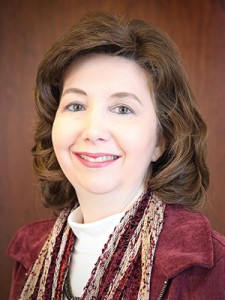Churches find new ways to serve families with school children during pandemic
By Lonnie Wilkey
Editor, Baptist and Reflector
lwilkey@tnbaptist.org
 FRANKLIN — Decisions by local school boards on whether to have in-person school or virtual learning are leaving many families scrambling to find ways to take care of their children and their educational needs.
FRANKLIN — Decisions by local school boards on whether to have in-person school or virtual learning are leaving many families scrambling to find ways to take care of their children and their educational needs.
As a result, doors are opening for churches to make an impact in their community.
“2020 has been a year of reimagining children’s ministry,” observed Vicki Hulsey, childhood specialist for the Tennessee Baptist Mission Board.
“At a time when most churches have been unable to do what they normally do in children’s ministry, many have stepped outside of the norm to find creative new ways for reaching, teaching and ministering to kids and families,” she noted.
An opportunity has quickly surfaced as many schools are having to quickly pivot to some type of remote/virtual learning, she continued.
“This sudden shift has created some intense stress for many parents, especially those parents who do not have the option to work from home. Even for those with the flexibility to work at home, the stress of trying to focus on their job while at the same time ensuring their children are engaged in learning can be extreme, Hulsey said.
Hulsey observed that Tennessee Baptist churches “are hearing the cries of their parents and beginning to look for ways to support families that are still struggling from being thrown into home-based learning when the pandemic first hit.”
She said churches are exploring ways that unused space in their facilities can be used for a new purpose — allowing parents to continue to work “while having the confidence that their children are not only cared for, but their education is not sacrificed.
“Some churches are exploring having trained educators available to students during school hours while parents are at work. Some are even offering before and after school care. Other churches may not have available leadership, but they can open up rooms for parents to come and have study space with their children away from the distractions of the home environment,” she said
Hulsey noted that in years past churches would not have been able to provide remote learning because they would have been unable to meet “the requirement for licensing that would be needed for the number of hours children would need to be in a remote learning environment.
“Tennessee churches now have an option that would allow them to assist families,” Hulsey said, adding that the state of Tennessee now allows Remote Learning Education Exempt Programs, but in order not to be considered illegal, an Education Exemption Request must be filed: https://www.tn.gov/humanservices/for-families/child-care-services/remote-learning-education-exempt-programs.html.
“If churches are operating a remote learning site and have not filed for exemption, we encourage them to do that immediately. Churches also need to have safety and security guidelines in place, including background checks for all adults working with minors,” she said.
Indian Lake Peninsula Church in Hendersonville offered remote learning for students for two weeks when Sumner County schools began in August.
 The schools started with a hybrid program where the children went to school for two days a week on a rotating basis, said Danielle Carpenter, assistant director of preschool and after school care for the church.
The schools started with a hybrid program where the children went to school for two days a week on a rotating basis, said Danielle Carpenter, assistant director of preschool and after school care for the church.
She explained that the program actually was an extension of the church’s after school care program they always provide. “We wanted to help parents and take care of their children,” Carpenter said.
The program ended after two weeks when Sumner County decided to send all the kids in grades K-5 back to school full time.
Carpenter is glad the church was able to provide a needed ministry to the community when parents needed it the most and she said the church would consider reopening it if COVID cases spike later in the year and schools are forced to readjust schedules again.
“It is a good ministry,” Carpenter affirmed. “We were able to have devotionals and teach the children about Jesus,” she said, adding that the church reached some kids who probably have never been to church before.
The Church at Sugar Creek in Humboldt also has provided a way to help parents.
In March of this year as schools began shutting down across our region, we saw parents frantically search for solutions as both parents worked outside the home,” said pastor Greg McFadden.
“We were burdened for them then without a plan to help. Then as the COVID conversations continued into summer and schools began introducing or implementing plans that would require virtual and distance learning, we challenged the staff to address the concern by developing a strategy to assist parents as needed,” he said.
Noting that the church has children from 11 different school districts, finding a solution was challenging. “God led our staff to pause regular programming so that we could focus on meeting this concern. The staff took the lead with capable volunteers staffing two classrooms, one for elementary and one for middle and high school students,” he said.
 McFadden stressed they have made it clear that “this is a rapid response ministry and that we are not a substitute for homeschoolers or families that elect virtual learning as an option. This is a ministry to parents by helping their children with school assignments while keeping them safe.”
McFadden stressed they have made it clear that “this is a rapid response ministry and that we are not a substitute for homeschoolers or families that elect virtual learning as an option. This is a ministry to parents by helping their children with school assignments while keeping them safe.”
Kathleen George, children’s minister, agreed. “I have been most excited about this opportunity because it is a huge need that we can actually meet and will cause no additional strain to our families’ financial resources. It also allows us to deepen our relationships with parents and students because, we are getting to spend real time helping them and teaching them all the while communicating with parents and developing trust. There truly is no greater time to be the church.”
Christian Shipman, minister to students at the church, observed that the ministry has been “an incredible opportunity to be there for our church families when they need it most. This is a way for us to continue doing ministry and to do it in such a way that it makes a huge impact in these children’s and parents’ lives during this season.
“I’m excited about getting time with these students that I may not have been able to get to before and build those relationships. Building trust and relationships is huge in pointing students to Christ. It is an exciting time!”
Hulsey said that making a shift like this “is certainly not without challenges and is not for every congregation. Challenges might range from suitable space that allows social distancing to daily sanitizing protocols to liability concerns, but for many congregations, these are not impossible hurdles when following closely the guidelines set by the CDC and local government agencies.
“Ideas like these could be amazing ways to serve families, not just among church families, but also the community,” she continued.
“What an opportunity to connect with neighborhood kids who might never have otherwise entered the doors of a church building. This could be an entry point for building relationships by being the hands and feet of Jesus, serving families and meeting needs — physically, mentally, socially, emotionally and most important of all, spiritual needs.” B&R

